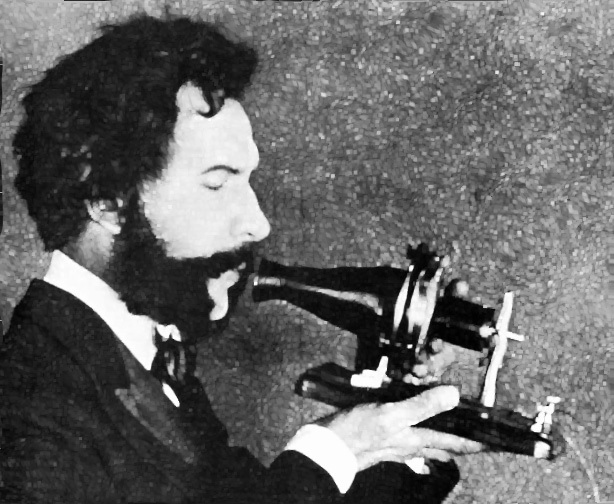Telecom Informer
by The Prophet
Hello, and greetings from the Central Office!
It's actually not a Central Office this time. I'm in Muscle Shoals, Alabama, with the sun beating down on my head. I'm entirely out of my element. The cool, 65-degree temperatures of the Central Office in the Pacific Northwest, where the clouds cloak the sun and blast-resistant steel-reinforced walls cloak the rest, are a long way away. I am learning to splice fiber, and if I'm out of my element with the climate, the training isn't much of an improvement. I have a week to learn enough to pass an exam, and if I don't I'll be fired. No pressure.
Since becoming a manager, my life has become a lot different, and one of the things that has changed is being on the other side of the union-management relationship. Periodically, as a union worker (before earning my first retirement - I'm drawing a pension in addition to my current salary), management and the union would fail to agree on a contract. We'd go on strike and the union would give us strike pay from their war chest. It wasn't as much as my salary, but I read the union newsletter, knew when each of our contracts was up, and saved enough to weather a strike (others who planned less carefully would inevitably grouse about falling short of obligations). In the meantime, hapless managers would attempt to do our jobs, mostly causing more problems than they solved. Eventually, after a couple of weeks, the union and management would come to an agreement. Inevitably, this would include back pay so I saw going on strike as a bonus. I'd get a couple of extra weeks of paid vacation, plus extra pay from the union while we were out on strike.
Of course, this came at a cost. Management was - to put it kindly - inept when it came to running my Central Office. For months after each strike, I'd be cleaning up messes that were left behind. These came in various forms. Usually, things would be done completely by the book and documented per company standard. However, this was a big problem when the wrong procedure was performed! Additionally, there are different versions of "by the book." My Central Office was relatively new, having been originally constructed in the early-1960s. However, many Central Offices were constructed around the turn of the 20th century, or even earlier. Most things done to code (and according to company procedures then in effect) were considered "grandfathered" if left untouched. Most Central Office managers have things that they go out of their way not to touch for this reason. Make a single change in a key area? That triggers a new inspection. And new inspections have a way of generating a ton of new work as remediation is demanded. Sitting on the management side now, it's hard for me to see any normal circumstance under which a labor dispute would be worth the cost. If the hidden costs of a strike were added up, upper management would be floored.
However, such decisions as these are well above my pay grade. And - in my view - they are emotionally driven anyway. Labor leaders want to strike. This is where they become visible, and justify union dues to their membership. And strikes are raucous and visible indeed. It's not unusual for union members to follow management workers around on service calls, videotaping them and posting the whole thing (often including some absolutely hilarious screw-ups) on YouTube. And management, for its part, often puts reason aside and negotiates emotionally. This is a recipe for disaster. In my view, strikes are far worse for the company than they are for the unions or its members; the company just isn't negotiating from a position of strength. At the end of the day, people make the network run, and it becomes quickly apparent every time there is a strike that these people are actually necessary.
Nevertheless, I'm here in Alabama learning fiber splicing. Once every four years, the company requires me to report for training. The computer picked my job. Although I have decades of experience running Central Offices and am usually the person other switch techs call for advice, I won't be filling in as a switch technician in the event of a labor dispute. Oh, no. That would make sense. Instead, after filling out a computerized aptitude test which is used in the selection and assignment process, the computer decided that I'm perfectly suited to fiber splicing. I contacted HR, assuming there might have been a mistake, and was quickly shut down. "You're lucky we don't have you out climbing poles," said Sally, my HR representative. I decided not to push my luck any further and, when my number was drawn, I was on a plane for Alabama.
My instructor Rick, unlike me, has already retired twice and is drawing two pensions (I'm supremely jealous). Now he's working 40 hours a week as an instructor, and is handsomely paid. Rick has worked for the company since it was the Bell System, and has worked with fiber optics since the company's first network was built in the 1980s. He has truly seen it all, and I'm absolutely confident that he could deal with any situation that came up. Me? Not so much.
Rick is an ex-Marine, likes to start at exactly eight in the morning, and God help you if you're late. The first guy who walked in ten minutes late, holding a cup of coffee, never finished it. Rick actually had him on the ground doing push-ups! Given that failing to complete training is a firing offense, and it's entirely up to the instructor whether you completed training, there wasn't any argument. Nobody has been late to class since then.
Fiber splicing is the process of connecting fiber optic cables together. There are a variety of reasons to do this, but during a strike, fiber that gets spliced is usually fiber that has been broken. Sometimes it's due to sabotage (which seems to happen at an elevated rate during labor disputes), but emergency fiber splicing calls usually involve errant backhoes or trains derailing (an astonishing amount of fiber optic cable runs in conduit alongside railroad tracks). It's an incredibly fussy and intricate process, for which eagle-eyed vision and a steady hand are a must. As a field, it has been compared to brain surgery and that's not far off. The work is typically performed in a specialized mobile laboratory custom-fitted for this purpose. I'm being trained in a lab that is in a converted 1980s motor home (it still has the kitchen), but newer labs are in vehicles that are more appropriately specialized for this purpose.
Speaking of the 1980s, they are alive and well. The training facility was constructed in the 1980s, the furniture is 1980s era, and the endless training videos we watch (around two-thirds of the time spent in class) were filmed in the 1980s. They're on VHS cassettes, and an ancient VCR displays them on an old tube television. Rick fills in with anecdotes and comments on whether the actors seem liberal (he's proudly conservative). Although technology and techniques have evolved since the 1980s, it is almost as though the company doesn't really believe that we'll actually have to put this knowledge to use in the field. Otherwise, they would probably make an investment in updating the training.
In a pinch, could I actually splice fiber? With my old eyes and unsteady hands, sure. I'd splice something, all right, but probably the wrong something. It's like sending a hospital administrator for a week's worth of training every four years, with no other medical background, and saying "The surgeons are on strike, go out and save lives." If any lives are saved, it'd be solely by happenstance. But that's not actually the important question. The important question is whether Rick gives me a passing grade. So far, I think I'm in pretty good shape. He's a big Trump supporter, and I give him a wink and nod when the subject of illegal immigration comes up at lunch. Rick thinks he knows where I stand, and if I play my cards right, I'll get an A grade. I might even avoid doing push-ups.
And with that, it's time to bring this issue to a close. Whatever you're doing this spring, take a moment to thank the invisible men and women that help you communicate about it.

